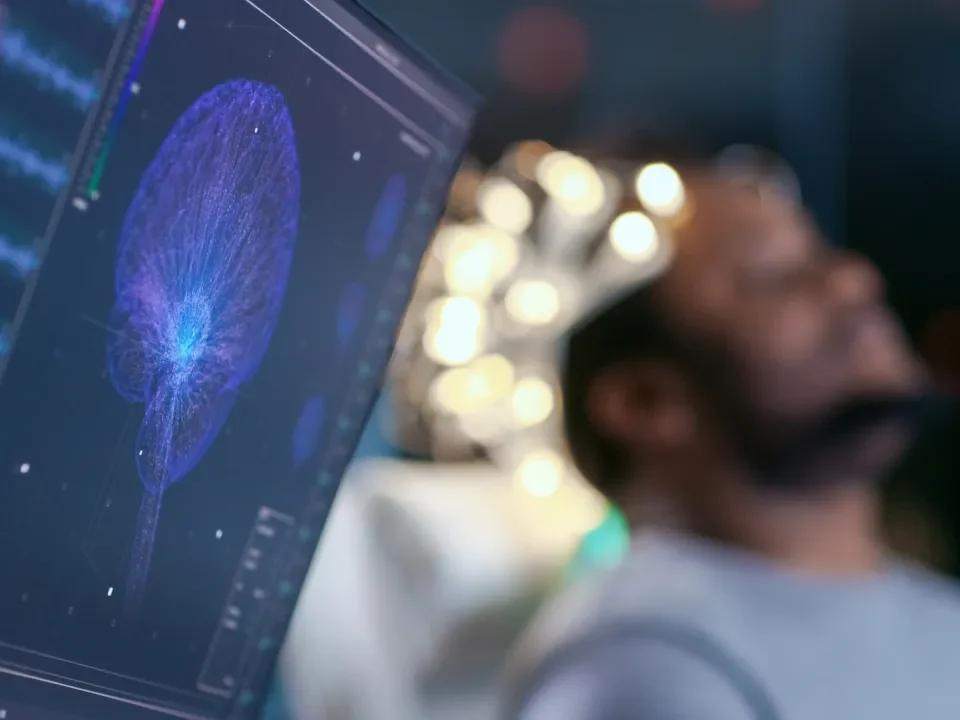Overview
The only psychology Master’s of its kind in Ireland, this pre-professional programme explicitly focuses on the wellbeing of individuals, families and communities – an attractive area for prospective employers.
During the course, you’ll cover wellbeing, mental health and community psychology, innovations in psychological practice, environmental influences, wellbeing throughout the lifespan and more.
Benefit from research-led teaching
With research and practice at its core, the programme will help you develop your theoretical and conceptual knowledge of the factors that affect wellbeing. Our research-led teaching, including interactive workshops and seminars, offers you a highly engaging learning experience.
Once you graduate, you’ll be highly sought after for assistant psychologist roles in sectors such as education, healthcare and community work. The programme is also ideal for anyone looking to pivot into areas such as research or other professional psychology training.
Why DCU
DCU People

As she graduates with a Masters of Science in Psychology and Wellbeing, Holly Browne feels she is, “a stronger candidate for psychology roles,” and her qualification will be a stepping stone to doc
Read more about Holly Browne
Careers & Further Options
Careers
This programme provides an excellent springboard for students going on to further professional (e.g. clinical, counselling, educational) psychology or research training.
This programme would also benefit those who are working in applied settings including in education, community settings, mental health, family support, and clinical psychology.
-
Community
-
Community Education
-
Education
-
Healthcare Sector
"DCU graduates are highly sought after by employers. Our Graduates work in environments ranging from large multinationals to SMEs, family businesses and start-ups across every sector.
DCU Careers Service has a number of learning and development initiatives in place for our students, giving them the skills they need for a successful career path."
Entry Requirements
For admission to the M.Sc. in Psychology and Well-being, entrants will normally:
• Have a relevant undergraduate degree in psychology (or equivalent - e.g. psychology conversion) with a minimum H2.1 or equivalent
• Candidates must demonstrate eligibility for graduate membership of the Psychological Society of Ireland (PSI). Specifically:
- The study of psychology should be spread over at least three conventional academic years (or at least 12 months in the case of a conversion programme)
- The modules upon which their primary degree classification is calculated consisted of at least 50% psychology modules.
- These modules must cover the core areas of psychology as identified by the PSI Biological Bases of Behaviour, Developmental and Lifespan Psychology, Social Psychology, Personality and Individual
Differences, Cognitive Psychology, Research Design, Quantitative and Qualitative Methods (including Practical Component) and should include a capstone research project.
- The course should address ethical principles for psychological research and professional practice.
Recognition of Prior Learning (RPL) applicants are required to submit a cover letter along with their application under the Transcripts section of the portal, affirming their intent to apply for RPL. For more information on RPL see here.
Candidates who are non-native speakers of English must satisfy the University of their competency in the English language. More information about DCU's English language requirements can be found here.
Programme Structure
The 90-credit programme is offered on both a one-year full-time and two-year part-time basis.
The full-time commitment is between two and two and a half days on campus per week (Monday and Tuesday) for one year. In addition, all students are expected to attend a week-long Spring School on the DCU Glasnevin campus, usually held in March.
The part-time commitment is one full day on campus per week for two years
Year 1: Monday and Year 2: Tuesday.
In addition, all students are expected to attend a week-long Summer School on the DCU Glasnevin campus, usually held in June.
Please note that days and dates are subject to change depending on timetabling.
Students will complete the following modules:
- Wellbeing, Mental Health and Community Psychology
- Innovations in evidence-based psychological practice
- Environmental influences on well-being
- Wellbeing through the lifespan
An additional module, which spans Semesters 1 and 2, focuses on developing individual specialism in one area of psychology and wellbeing through in-depth literature review.
Students will also complete a year-long supervised individual research project.
The programme will:
- Challenge students to develop their theoretical and conceptual knowledge of factors impacting wellbeing
- Provide research-led teaching including additional workshops and seminars in an interactive spring school
- Enhance opportunities for learners to enter or progress their careers in a variety of public and private settings
- Benefit those keen to pursue more advanced and specialised postgraduate studies
Fees and Funding
Fees
How To Apply
To apply for this programme:
- All Applicants must apply through DCU's Student Application Portal which is available here. Here's a quick step by step guide if you need help with your application.
- Academic Transcripts for each and every year of study, with English translation if applicable.
- A detailed Personal Statement, of 250-750 words, outlining Psychology qualifications, why you wish to complete this programme and how it fits with your current or future plans.
- Applicants are required to submit two recent academic references. Please submit their email address to the application portal, one academic contact under 'Letter of Recommendation-Professional, and one academic contact under Letter of Recommendation-Academic.
- Please upload a CV, detailing relevant academic and professional experience, under the "Supplemental Items & Documents" section.
- If applicable, provide evidence of competence in the English language as per DCU entry requirements. Please see link http://www.dcu.ie/registry/english.shtml.
- Due to the specialist nature of this programme, additional criteria may be used to assess suitability to undertake this programme. For further information, please contact the Programme Chair using the contact details above
Please note if you are a non EU student and require a study visa, you are not eligible to apply for part-time programmes as study visas are only granted for full-time programmes.
Application Deadlines
Applications will be accepted on a rolling basis until the programme is full or until the following dates:
- Closing date for non EU applicants is 31st March 2025.
- Closing date for EU applicants is 31st March 2025.
- All required documentation to support an application must be submitted by 31st March 2025.
Note applicants who require a study visa for the purposes of studying at DCU, are advised to apply as early as possible.
All entry requirements should be met before the commencement of the programme.
Application Queries
For EU applicant queries, please visit https://www.dcu.ie/registry/eu-postgraduate-taught-admissions or email postgraduateadmissions@dcu.ie
For non EU applicant queries, please visit https://www.dcu.ie/registry/international-admissions-undergraduate-and-postgraduate or email internationaladmissions@dcu.ie
Commencement of Programme
The programme commences in September 2025.
Life On Campus
At DCU, our students can expect a unique campus experience. We are known for our excellent teaching and learning facilities, our active clubs and societies, and our great social and sporting facilities. All this makes DCU an exciting place to be.
DCU has three academic campuses; Glasnevin, St. Patrick’s and All Hallows (both in Drumcondra), all close to Dublin City centre.
They can be reached by public transport, Dublin Bus and Bus Éireann, with our Drumcondra campuses a ten minute walk from Drumcondra Train Station. Glasnevin is a 20 minute walk from St Patrick’s and All Hallows. They are also linked by Dublin Bus.
Each campus has a library (O’Reilly, Cregan and Woodlock Hall), study spaces, restaurants, and on-campus residencies. There are sports facilities on Glasnevin and St. Patrick’s, and there is a dedicated sports campus, St Claire’s, located near Glasnevin on the Ballymun Road.
DCU’s 19,000 students have access to exceptional teaching and learning facilities across our three academic campuses.
These include modern learning theatres, research centres, a new media and TV studio, radio/podcast studios, computer suites and advanced labs in the areas of Languages, Engineering, Physics, Chemistry and Biotechnology, as well as a Sports Performance centre and a training hospital ward. In 2021, we opened our first virtual reality ‘Leadership Lab’, which is located in our Business School.
We continue to improve and update our facilities. For example, construction of a new world-class STEM facility is underway on the Glasnevin campus. With capacity for an extra 3,000 STEM students, this facility will advance DCU’s international reputation for excellence in science and health, computing and engineering disciplines.
Studying in DCU isn’t just about course work. The university is rich in student life and activities.
There are more than 140 clubs and societies for students in DCU, with ‘Clubs & Socs’ days taking place on both the Glasnevin and Drumcondra campuses at the start of the academic year. They span everything from rugby to rock climbing, anime to jazz.
For many students, sport is an important part of the DCU experience. DCU’s Sports Complex boasts a 25 metre swimming pool, fitness centre gym, all-weather pitches and squash courts, as well as soccer, GAA and rugby pitches. DCU Dóchas Éireann, the university’s GAA club, is the largest third level Gaelic Games club in the country. Meanwhile, DCU Athletics has been Ireland’s highest achieving university club for many years. And DCU has dozens of other clubs to get involved in, from Archery to Weightlifting.
The Glasnevin campus is home to our purpose built, state-of-the-art student centre, The U, which serves the needs of a rapidly growing student body. Here, you will find the Student Leadership and Lifeskills Centre, performing arts and cultural spaces for students and the wider community, and the Entrepreneurship and Innovation Hub. Also located on our Glasnevin campus is The Helix, our renowned performing arts centre.
On our St Patrick’s campus, we have the Java Student Hub, a vibrant, warm and welcoming space where students can meet for coffee, play music, use the projector to watch events, or just relax. The walls of the Java Hub were designed based on the cultural history of St Patrick’s Campus, including the special references to the notable sporting history and history of the arts.
We have a number of academic, professional and social supports for students.
Student Advice & Learning Skills Centre - Offers a wide range of supports and services to students and advice
The Writing Centre - drop-in writing workshops for students through the academic year
Maths Learning Centre - provides maths support for students of all ability levels with maths modules
Student Learning - facilitate the transition from passive to active learning for students at DCU, by teaching study skills, nurturing critical thinking and building student confidence.
Careers work with students to help them on their professional journey into graduate employment.
Our student support team offers a comprehensive support programme, helping students make that all important transition into university life and focusing on building confidence and skills which are key to success at third level.

DCU Glasnevin Campus
FAQs
Is DCU all one campus?
DCU is a multi campus university - the Glasnevin, St Patrick's and All Hallows campuses. The St Patrick's campus is where the Education courses are taught and some of the subjects from the BA Joint Honours degree. There is a 20-25 minute walk between the campuses but there are buses and bikes available to go between them also.
Click here to see maps of all of our campuses
If I'm studying on the St Patrick's campus, can I use the library and sports centre on the Glasnevin campus?
Yes, all facilities such as sports and accommodation are open for all DCU students to avail of.
Are there libraries in DCU and if they have wifi and work stations?
We have a brand new state of the art four floor library on our St. Patrick's Campus which complements the existing library on the Glasnevin campus. There is free wifi, work stations as well as desktop computers.
Does DCU provide accommodation?
DCU does have on-campus accommodation for undergraduate and postgraduate students, and you can find out more and apply via the Accommodation Office webpage.






